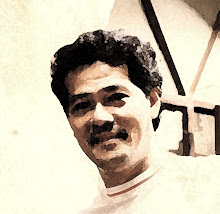This is for you EV to help you with your research on improvisation.
Improvisation is music which is created as it is performed, without previous preparations or detailed notation. Improvisation was once considered of great importance, and was a skill much practiced by keyboard performers, such as Bach, Mozart, and Beethoven; in 1747, for example, Bach improvised a fugue on a theme devised by Frederick the Great, which he subsequently developed in his Musical Offering.
In modern times, jazz musicians have improvised melodies against a harmonic, or modal, background, and improvised passages have appeared in "aleatory" music, which contains elements of chance, or random selection. Nowadays, improvisation may be applied to a wide variety of skills, ranging from elaborate extemporisations by organists or other keyboard performers, which may involve a high degree of compositional talent, to the reproduction, or harmonization, of existing music
Some people have a natural gift for playing by ear music, which they have heard, sometimes with a remarkable degree of accuracy. Those who do not possess this gift may, with practice, acquire sufficient skill to enable them to harmonize melodies, and possibly to attempt simple composition, at the piano. To attain this skill, some knowledge of harmonic progression is necessary.
Some people have a natural gift for playing by ear music, which they have heard, sometimes with a remarkable degree of accuracy. Those who do not possess this gift may, with practice, acquire sufficient skill to enable them to harmonize melodies, and possibly to attempt simple composition, at the piano. To attain this skill, some knowledge of harmonic progression is necessary.












